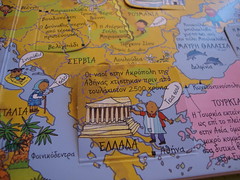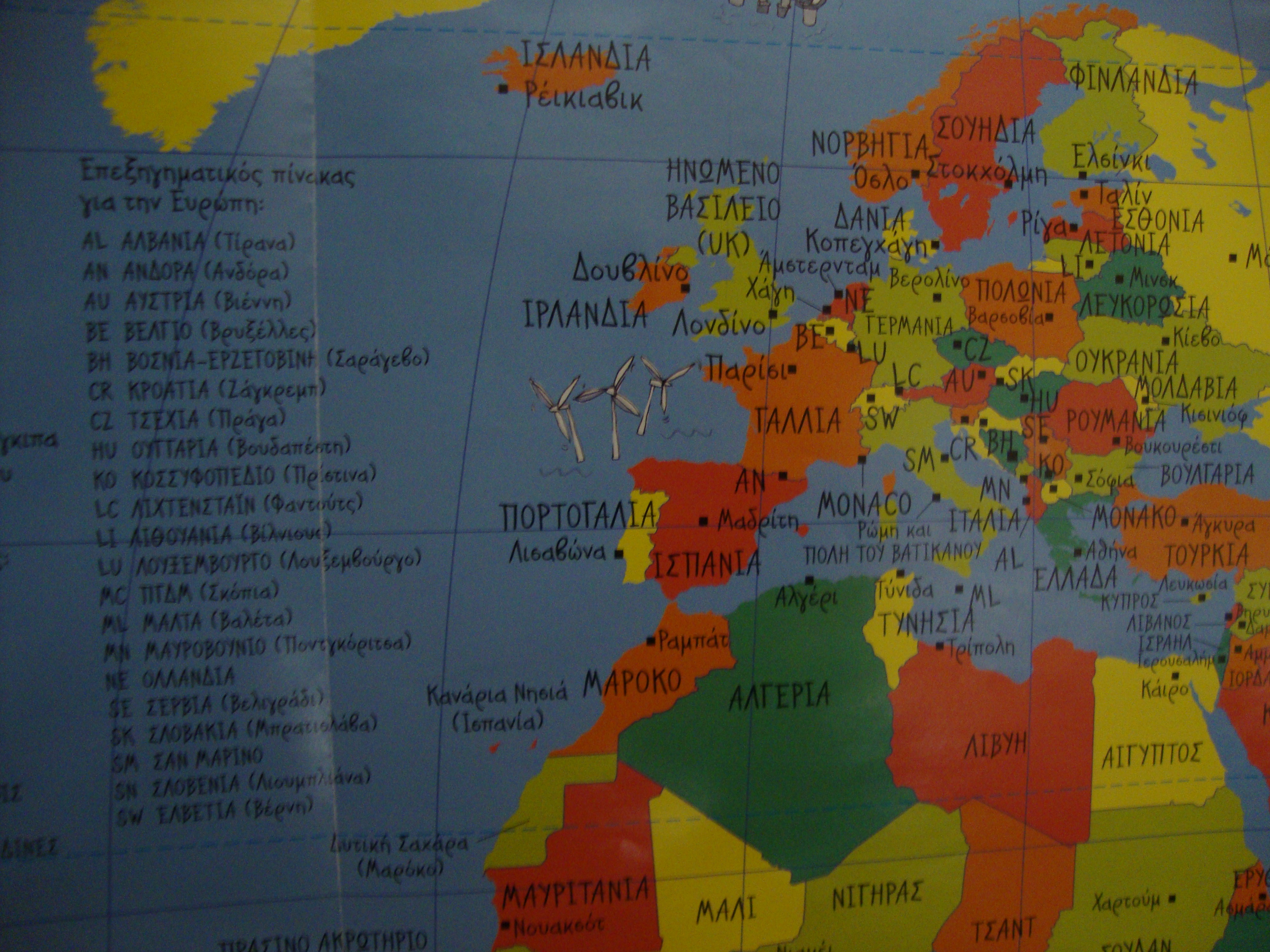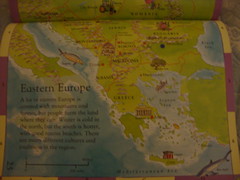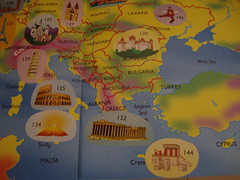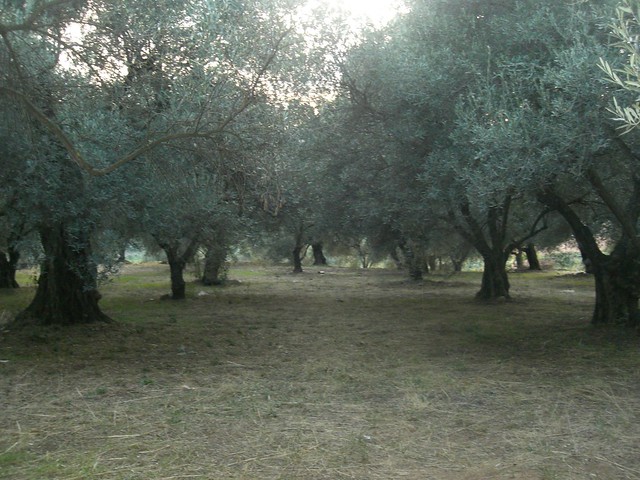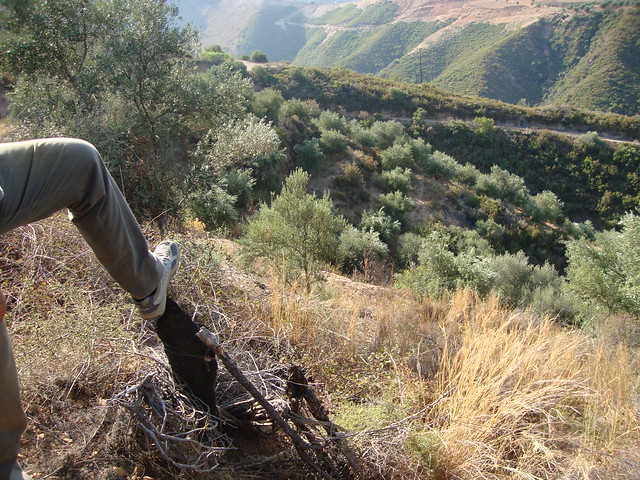Today has been scheduled by social media networks as "We are all Greeks now" day.
A week ago on Saturday, I found myself at my
workplace. Not that I work on Saturdays; I am one of those privileged people that doesn't work on Saturdays, or Sundays, or after 4pm, which almost makes me sound like one of those loathsome creatures we call state employees in Greece (even though I'm not). I came to work with the whole family to chop up some firewood after a terrific storm swept through Crete, leaving a trail of destruction as
it passed.
I had no idea what was happening outside my warm and
sheltered office on that Monday. All I could see from the window was the rain. I only
realised something was wrong when I left the office in the afternoon. It
was 4pm and the ground caretakers were clearing the car park of debris;
a number of trees (hibiscus) had their trunks snapped in two. As I watched the men
working, I wondered if they would take all the wood themselves; firewood is now a precious commodity all over Greece.


Coming out onto the
main road, I noticed that council workers were also working on clearing
the roads. Traffic was being slowed down and redirected while they
cleared the road of torn branches. This must have been one huge storm, I
thought, feeling guilty for not having realised that something so awry was happening outside the confines of my office. When I went to pick up the children from school, I was a little shocked to see the wall of the outside stage (something like a dais with a wall for placing props as background scenery) lying flat on the ground (no one was harmed - that's a miracle). But I was even more shocked when I went home and found a tree in our yard had also been felled. That was one huge storm.

In all, 15 pine trees were destroyed in the grounds of my workplace in the storm. One tree was huge. It was also difficult to get to it. The caretakers left it as their last job. I told them that if it was still here on Saturday morning, my family would clear it up ourselves. This is how I found myself at work on Saturday, with my whole family.
Some of my students were surprised to see me there, but when they saw what we were doing, they came and chatted with us. I have about 50-60 students under my wing every year, studying English alongside subjects ranging from Sustainable Agriculture to Economics and Business Administration; They come from all over the Mediterranean, as well as the former Eastern bloc countries, the Middle East and a few other EU countries. Todor was particularly helpful; he knew all about cutting down trees for firewood:

"Every summer when I was young, I'd spend a few days cutting down trees with my father. We'd pay a certain sum to the forestry department, they'd mark the trees that we were allowed to cut down (for the purposes of thinning the forest), and after we chopped them down, we'd cut them into smaller pieces, just like you're doing now and carry them home in our truck. We need about ten tonnes of firewood to see us through the winter,
because in my country, the winters are very cold and quite harsh."
"Yes," I agreed with Todor, "winters are harsher in Albania than they are in Greece."
"Oh, I'm not from Albania," Todor said, which caused me a little embarrassment, because I sometimes forget which country my students come from, in the same way that I forget their names from one year to the other, as I change groups annually.
"Sorry, Todor," I said, "where are you from again?"
"Oh er I'm from er Skopia er FYROM er um oh I don't know er whatever er you call it--."
Greek atlases for children (above) are often translated books from other languages (usually English). Naturally, the translation of country names reflects the politics of the country the book was issued in. In these children's books, the name of the Former Yugoslavian Republic of Macedonia has been completely omitted in the map - it is left as a nameless country. In the English atlases (below: presents from friends), the name of this country is Macedonia.
At that moment, I stopped hearing whatever else Todor was saying to me. I was deafened by my guilt. Here was a person, standing in front of me, telling me about his country, but he was fearful of calling his country by the name he knows it, so as not to offend me. I was struck dumb at that moment, but I couldn't afford to lose face. Even though I was wearing my farmer's clothes, and I was covered in wood shavings, and my shoes were muddy, Todor didn't see me as a poor cursed Greek, the scourge of Europe. He saw me as his teacher.
*** *** ***
In Greece, it is not acceptable to use the term "Macedonia" when meaning
the country to the north of Greece, the Former Yugoslavian Republic of
Macedonia, aka FYROM; the name is a contentious issue on both sides of
the border. In Greece, the word 'Skopia' is used, as this is the name
under which the area was known (to be precise, Uskup) from at least the past century, according to
a map of the world which was produced in 1896 in New York. If you can read Greek, here's a story about
what happened when a Greek and an Albanian of Skopian descent came together (use an online translator if you can't).
The
correct way to refer to Todor's country in Greece causes great embarrassment to me
at work, especially since we have quite a high number of students from there. How does one maintain an appropriate level of respect? FYROM is
not the name of a country, it is simply an acronym. There is no such
thing a Fyromese, neither for a person or a product. Todor's fellow citizens don't call themselves
Skopians, which the Greeks have been doing for years. And have you ever
heard someone say: "Oh, you're a
youka" (more likely, they'll say
'
English', or '
British', or
'from the UK'). And even less likely "You're a
yousa" (they would probably say 'You're from the
US' or 'You're
American'). When I asked other students from Todor's country what name I should use, they often shrug and simply say 'Fyrom', but I think they've been prepped to say this
from their home country, in deference to the fact that they have come to
study in our territory, so they must respect our tenets, which, of course, they do.
In any
case, I fully sympathised with them when they became irate about their
country being introduced as FYROM during an international sports event
that took place in Thesaloniki which took place a few years ago. Todor's national sportsmen refused to take part unless their
country was referred to on the megaphone as 'the Former Yugoslavian Republic of Macedonia', and not '
fee-rom' (the Greek pronunciation of FYROM). The Greek hosts did not oblige, so the sports group packed up and
left home. Well, my compatriots from my former homeland wouldn't like it either, if someone
called them Enzeders, either (instead of "New Zealanders"), would they? The naming of this former Eastern bloc country was given so much attention by Greek politicians (in former times, before the economic crisis overshadowed all other Greek issues), that they could not concentrate on Greece's real problems, which is one of the many reasons why Greece is in the mess that she is today.
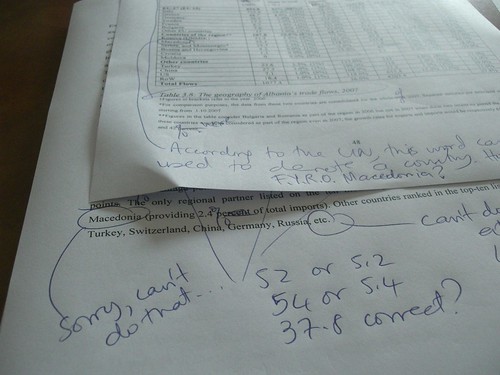
All my proofreading is done online these days (including all English lessons - everyone owns a laptop). In their thesis writing, students often ask me how to get round this problem. My solution is to show respect to both countries as well as following the pre-defined norms of the country where I live: I write "FYR of Macedonia".
What goes round comes round. Greek people around the world will tell you that they are now embarrassed to call themselves Greek or hint at their origins because of what is being said about Greece and the Greeks these days in the media. Really? What a shame. Or maybe good riddance. They were just fair-weather Greeks after all, completely dismissive of the people who raised them, and the sacrifices those people made so that they could be where they are now. I pity them because they are about to forget their roots, by choice. Being Greek in denial is an even greater curse than being Greek.
In today's global world, with an ever-increasing demand for transparency, if people have to feel embarrassed or fearful of admitting their origins, they will never live a free life.
One thing we can't change in our life is who put us on this earth and raised us. My parents were both Greek. I am Greek, despite not being born in Greece. So is my whole family. We can't be anything else. We are all Greek.
*** *** ***
Pine trees are hardly ever used as firewood. For a start, it is illegal to cut them down in Greece without permission, except in cases like ours, where they were felled by a storm. Secondly, once dry, they burn very very easily, so they don't last long in the fire. Thirdly, as Todor rightly pointed out, the resin in pine creates havoc in the chimney and flue pipes (which is why pine is never used in FYR of Macedonia - oak is burnt instead). This will be a problem for us when we start using it next year.
We gathered as much as our truck could take. We decided to leave the remaining log until the following week - but it didn't last: some other poor Greek managed to get to it before us!
For more photos of the tree chopping, click here.























